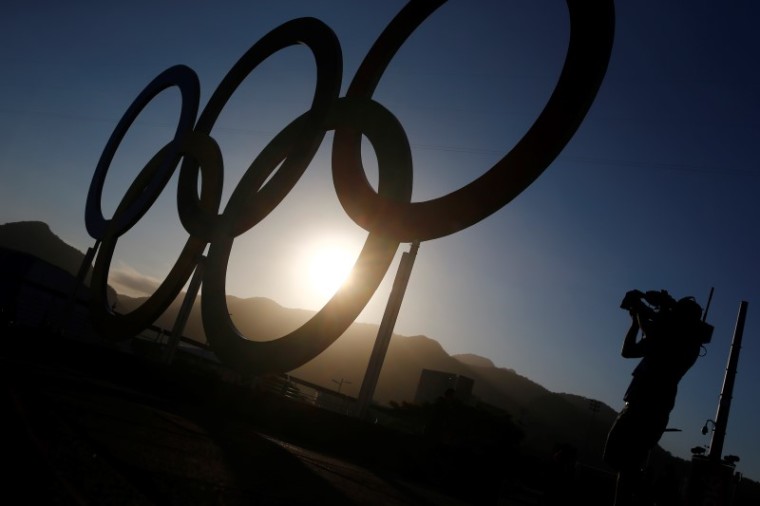

A lot has been said about Jonah Lomu in the days and weeks following his death last month. In many ways, Lomu was a figure bigger than the game of rugby itself. Both on and off the field, he had an impact on rugby that has not been matched by any other player, before or since.
Speaking personally, I was in a privileged position to see the ascent of Lomu's star when it first began to rise. Growing up just outside of Pukekohe in the North Island, I got to see Jonah start out in his rugby career for my local provincial team, Counties-Manukau.
By the time the 1995 Rugby World Cup kicked off, I had already seen some games of rugby on the television and had even been taken to a couple. But the first game of rugby that I can actually remember, was the All Blacks opening game of the world cup against Ireland. I don't remember much, except for Jonah Lomu running around, through, and over the Irish defence all day.
Throughout the tournament, he continued to do what he began against Ireland, culminating in his iconic four-try performance against England in the semi-final. While Jonah's performances in that tournament certainly made an impact on a whole bunch of kiwi kids like myself back then, what made him unique was the impact he had on people all over the world.
While for many people round the world the game of rugby still remained something of a mystery, what they did know of rugby they knew through Jonah Lomu.
Impact on the field
As a player, Lomu's impact on rugby extended beyond the teams that he played for. As rugby moved into the professional era, his unique combination of pace and power redefined backline play throughout the rugby world.
Twenty years on from the 1995 world cup, and most international teams are still trying to find their own version of Lomu. The Welsh have George North, the English have Manu Tuilagi, Fiji have Nemani Nadolo, and even the All Blacks have a 2015 version of Lomu in Julian Savea.
Since the advent of professionalism the game has changed significantly. There is more money, resources, and time spent developing players at the elite level. As a result, rugby players have been getting bigger, stronger, and faster.
While Jonah was something of an anomaly back in 1995, as mentioned, most teams have a player who fills the 'Lomu' role. But despite all of these advances, there is still no one player who measures up to Jonah Lomu in his prime. Indeed, while you will see players who are as big as him, as fast as him, and as powerful as him – there is no player in the world who combines all those elements together into one package.
Manu Tuilagi has the power of Lomu, but is shorter and slower. Nemani Nadolo is the same size, but lacks the speed. George North and Julian Savea both have a wonderful combination of size, power, and speed – but both of them still give up an inch in height to Lomu and at least 10kgs in weight!
Some people say that the game has changed so much since Jonah played, that he wouldn't have the same impact in a game where everyone is bigger and faster. There may be some truth in that. If he was playing today though, I have no doubt that he would still be the best winger in the world – by some margin.
Impact off the field
Like his impact on the field, Lomu's impact off the field has been unique in the rugby world. Although rugby is not a global sport on the level of football or basketball, it is certainly making great strides towards being a truly world game.
The recent 2015 world cup was the most well attended, widely watched, and most commercially successful in the tournament's 28 year history. In all five continents, rugby is experiencing an unprecedented growth in places which are not its traditional strongholds. And in 2016, rugby sevens will make its debut at the Olympic Games in Rio de Janeiro.
Rugby is clearly a much bigger game than it was when Jonah Lomu burst on to the scene 20 years ago at the world cup in South Africa. Yet there is still no one player who can replicate him as an ambassador and advertisement for the game.
2015 also saw the international retirement of Dan Carter and Richie McCaw – quite probably New Zealand's two greatest ever All Blacks. In terms of their longevity, performance, and success, there is probably no argument against them.
As great as they have been as players though, even they cannot replicate the star power that Lomu exerted around the world. Jonah was truly something special, a man who was able to transcend his sport and shape it well beyond his performances on the field.
We shall not see his like again.
Tim Newman lives in Christchurch, New Zealand. He holds an MA in History and is currently working as a ministry intern at Cornerstone Church.
Tim Newman's previous articles may be viewed at http://www.pressserviceinternational.org/tim-newman.html